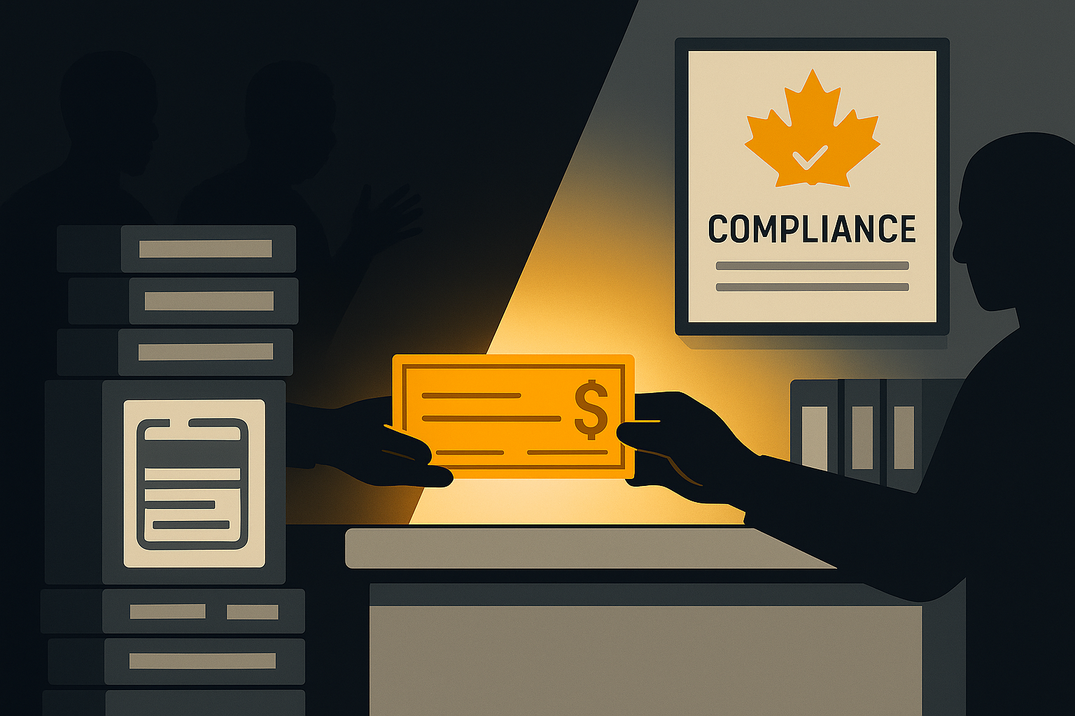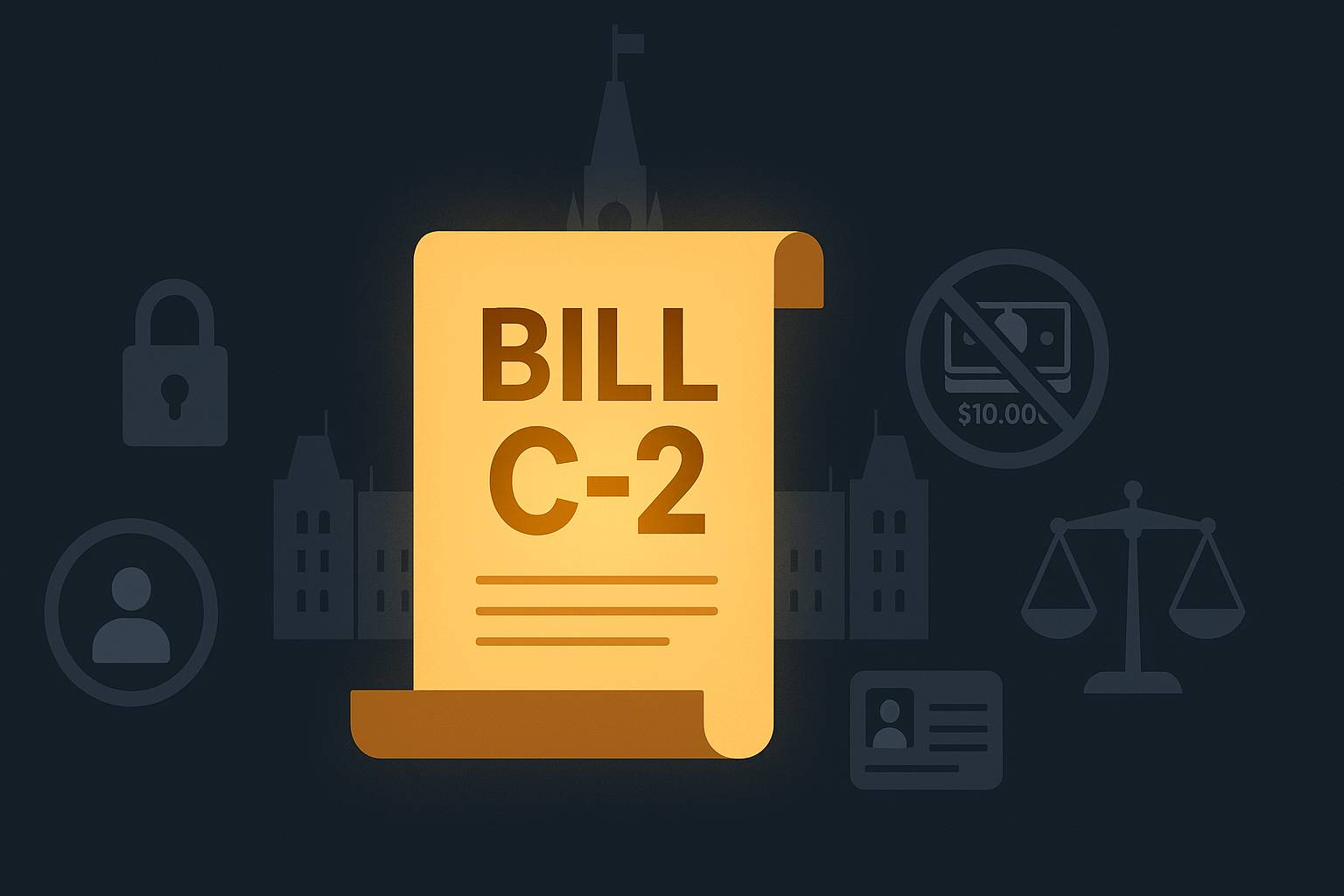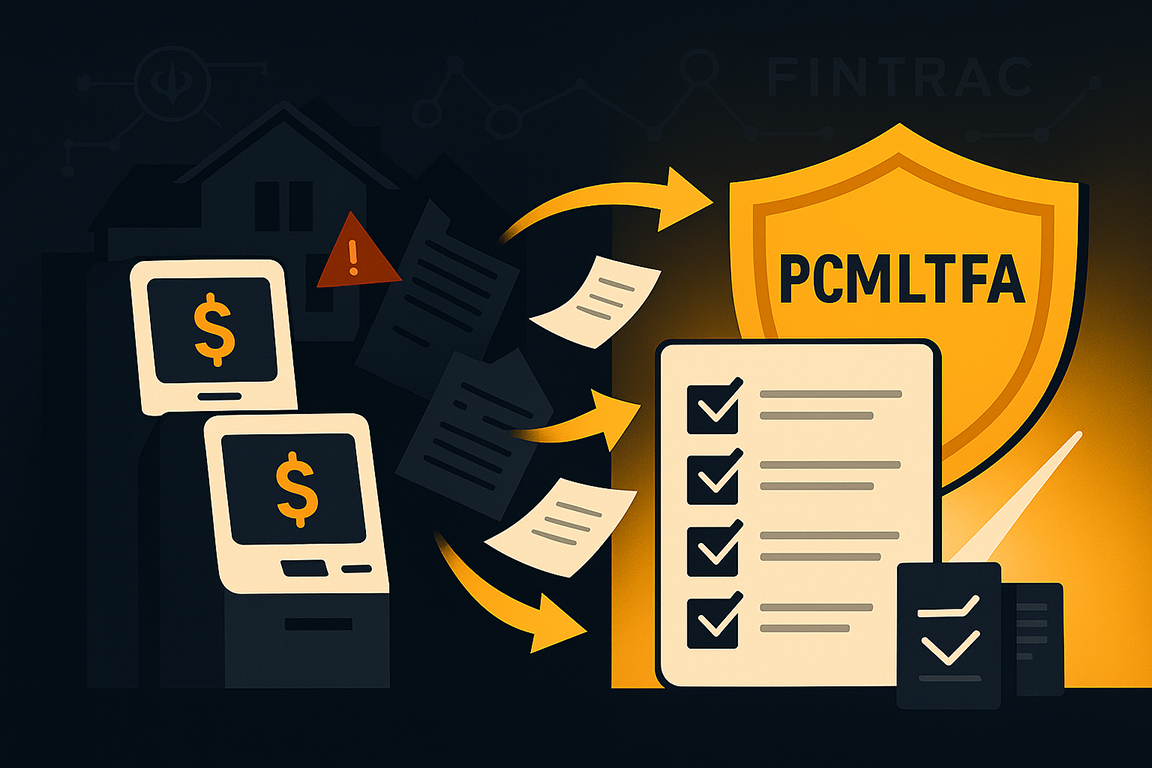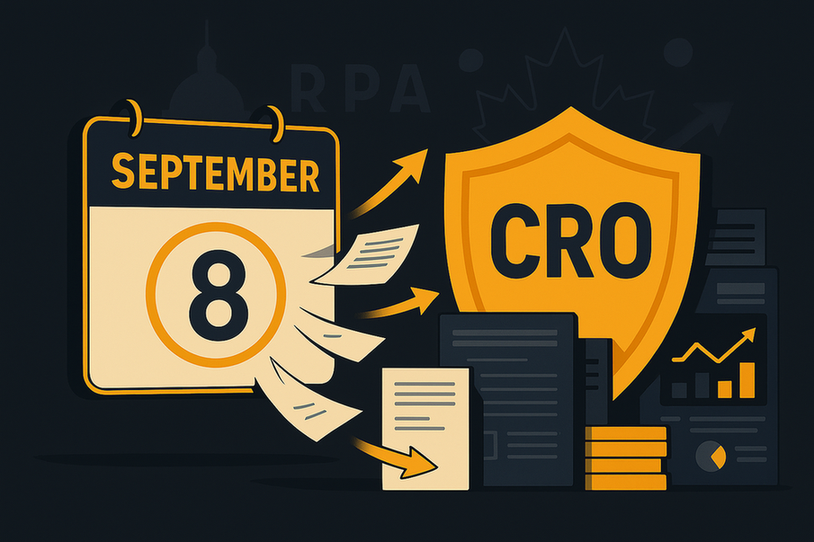15.09.25
Written by Haik Kazarian, Head of Business Development
Reviewed by Tigran Rostomyan, Founder & CEO
The New Reality for Cheque Cashers: Compliance Costs, Risks, and Opportunities
Since April 1st, 2025, cheque cashers are now officially regulated under FINTRAC. Learn what has changed since April 1, 2025, the new costs and risks, and how compliance can become an opportunity for stronger, more trusted operations.

After April 1, 2025, Canada’s cheque cashing businesses woke up to a new regulatory reality. On that date, thousands of cheque cashers officially became FINTRAC-regulated money services businesses (MSBs) under the federal Proceeds of Crime (Money Laundering) and Terrorist Financing Act (PCMLTFA). This change, outlined in AMLI’s April 1 blog Final Countdown to Compliance: Cheque Cashers Face April 1st FINTRAC Deadline, marked the end of an unregulated era and the start of full anti-money laundering (AML) compliance for the sector. Now that the deadline has passed, what comes next for cheque cashers? Below we explore what has changed since April 1, the rising compliance costs, emerging risks, and how savvy cheque cashers can turn these obligations into opportunities.
What’s Changed Since April 1?
Registration updates
As of April 1, any business cashing cheques for a fee must be registered with FINTRAC as an MSB. Those who completed registration are now listed in FINTRAC’s public database, which banks and law enforcement can check. Even if a business already held a provincial license, federal MSB registration is still required.
New FINTRAC guidance
FINTRAC has issued dedicated guidance for cheque cashers. Key requirements include verifying customer identity for transactions of $3,000 or more, keeping detailed records, and implementing the five pillars of an AML program: Compliance Officer, written policies, risk assessment, training, and effectiveness review. FINTRAC has emphasized education in this first year, but expectations are clear.
First observations
The first months revealed common struggles: developing full AML programs, understanding suspicious transaction reporting, and dealing with banks requesting updated compliance documentation. On the positive side, many cheque cashers have tightened fraud controls and are catching fraudulent cheques earlier thanks to these requirements.
The Rising Cost of Compliance
Becoming a FINTRAC-regulated MSB comes with added expenses. Government analysis has projected more than $50 million in new compliance costs across affected sectors over the next decade. For cheque cashers, the main areas are:
-
AML Program Development – Writing and maintaining policies, appointing a compliance officer, and documenting procedures. Many rely on outside support such as CAMLO/MLRO Services to establish and oversee their programs.
-
Training Staff – Employees must be trained on AML basics, red flag detection, and reporting obligations. AMLI provides AML Training tailored for front-line staff and managers.
-
Effectiveness Reviews – Every reporting entity must undergo an independent Effectiveness Review at least every two years. This audit verifies that the AML program is working in practice.
-
Technology and Tools – Larger operators are investing in ID verification scanners and transaction monitoring tools, while smaller firms must at least maintain accurate records and reporting processes.
Compliance is now a fixed business cost. The cheque cashers who manage it efficiently will be best positioned to remain competitive.
New Compliance and Fraud Risks
Altered and counterfeit cheques
Fraudsters often target cheque cashers with altered payroll or benefit cheques. Employees must be trained to recognize signs of tampering and escalate concerns.
Structuring and multiple small cheques
Criminals may try to avoid reporting thresholds by bringing multiple cheques just under $10,000. FINTRAC requires aggregation of related transactions, and suspicious patterns must be reported promptly.
Suspicious customers
Indicators include clients refusing ID, unusual transaction volumes, or attempts to coach staff on how to structure transactions. These scenarios must be documented and, if necessary, reported through Suspicious Transaction Reports.
Bank de-risking pressures
Banks are reassessing MSB clients more carefully. Cheque cashers that cannot demonstrate compliance risk losing their accounts. Strong programs and independent audits are essential for maintaining banking access. AMLI’s Regulatory Remediation can help address issues raised by banks or regulators.
Banking Access Challenges
Access to banking is now one of the biggest operational risks for cheque cashers. Banks often require FINTRAC registration numbers, compliance policies, and evidence of training or audits before maintaining or opening accounts.
Proactively sharing compliance documentation with banks can make the difference between keeping an account or being de-banked. An independent review or outsourced compliance officer can serve as proof of commitment to high standards.
Provincial Rules Add Another Layer
Cheque cashers must also comply with provincial rules alongside federal obligations.
-
Ontario caps fees for government cheques at $2 plus 1% of the cheque amount, up to $10.
-
British Columbia applies the same fee formula for provincial assistance cheques.
-
Quebec requires a separate MSB license through Revenu Québec, which involves background checks and annual fees.
These rules impact revenue models and must be reflected in compliance policies. Firms operating across provinces must adapt to different requirements and document how they comply.
Turning Regulation into Opportunity
Compliance is not only a cost. It also brings opportunities:
-
Credibility – Being federally registered signals legitimacy and can attract more customers and business partners.
-
Stronger controls – Improved procedures reduce fraud losses and create more consistent operations.
-
Customer trust – Professionalism and transparency increase client confidence. Posting that you are FINTRAC-registered can deter fraudsters and reassure customers.
-
Service expansion – Once a compliance program is in place, businesses can consider expanding into remittances or other MSB services, leveraging the same framework.
By reframing compliance as an investment, cheque cashers can differentiate themselves in a competitive market.
Year One Compliance Game Plan
-
Review your AML program – Update risk assessments and ensure written policies match daily practice.
-
Catch up on training – Ensure all staff understand obligations and red flags. Document training sessions.
-
Test your systems – Conduct internal checks or engage a consultant to verify recordkeeping and reporting.
-
Prepare for STRs and LCTRs – Establish clear escalation processes and templates.
-
Engage with banks – Proactively share compliance information to build trust.
-
Plan for your audit – Budget for your two-year Effectiveness Review now to avoid surprises.
Key Questions for Cheque Cashers
-
Are we fully registered with FINTRAC and compliant with initial requirements?
-
How much are compliance obligations costing us, and how can we manage them more efficiently?
-
Are staff prepared to detect fraud and suspicious patterns?
-
Have we communicated with our bank to protect our account access?
-
Are we compliant with provincial fee caps and licensing rules?
-
What steps should we take now to prepare for the mandatory two-year effectiveness review?
Conclusion
The move to bring cheque cashers under FINTRAC’s AML framework is reshaping the industry. Compliance costs are real, but so are the benefits of stronger controls, customer trust, and long-term legitimacy. Registration was only the starting line. The real work now lies in building effective programs, training staff, and integrating compliance into everyday operations.
Cheque cashers that embrace this shift will not only survive but thrive, positioning themselves as trusted financial service providers in their communities.
If you are navigating these changes, contact AML Incubator. Our team supports cheque cashers through registration, compliance program development, audits, training, and remediation.
Read More
Services
-
MSB Registration – FINTRAC registration support from start to finish
-
CAMLO/MLRO Services – Outsourced compliance leadership and reporting officer services
-
AML Program Effectiveness Review – Independent reviews to test program performance
-
Regulatory Remediation – Support to resolve FINTRAC or banking findings




